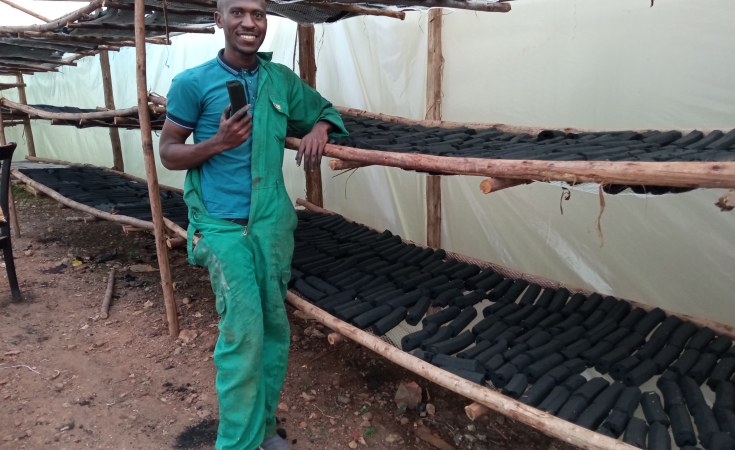In a remarkable endeavor blending environmental consciousness and innovation, Isaac Ndyamuhaki, a young Ugandan entrepreneur, has initiated a transformative movement. The visionary founder and team leader of Asili Kwanza Uganda has found a solution to the conundrum of waste generation in agriculture and the dire consequences of traditional cooking methods.
Read More: Dreams Talks: Fostering African Innovation Hive12 & Ichraf Jarray’s Vision
Uganda grapples with the dual challenges of prolific agriculture generating substantial waste and a significant part of its population relying on biomass-based fuels. These fuels, including charcoal and firewood, have dire environmental implications due to deforestation and indoor air pollution.
Isaac Ndyamuhaki, galvanized by this crisis, established Asili Kwanza Uganda, an innovative social enterprise that converts agricultural waste into briquettes. These briquettes are a game-changer, serving as a smokeless, cost-effective, and sustainable alternative to conventional cooking fuels.
The impact of Ndyamuhaki’s venture is profound, benefitting hundreds of households by reducing indoor pollution and waste dumping in Kampala. Furthermore, Asili Kwanza Uganda’s remarkable work was recognized with the top finalist prize at the Africa Climate Innovation Challenge 2023, validating the campaign for safe, affordable, and sustainable cooking solutions.
Ndyamuhaki’s journey began with a poignant realization of the environmental degradation caused by agricultural waste. He saw an opportunity in converting this waste into a valuable resource. Briquette production, driven by a simple locally fabricated machine, has provided clean cooking solutions that also offer economic opportunities, especially for women.
Read More: London Tube Map Gets a Dash of African Flavor – Rebecca Enonchong
Asili Kwanza Uganda, over two and a half years, has not only mitigated indoor pollution and saved trees but also created jobs for waste collectors and other individuals in the production and supply chain. Through their efforts, they’ve recycled 80,000 tons of waste in Kampala, an essential step towards reducing waste dumping and deforestation.
While their achievements are commendable, Asili Kwanza Uganda faces challenges in scaling up their operations, such as educating the public about briquette benefits, increasing demand, and securing funding. As the demand for their clean cooking solutions surges, they are committed to expanding their capacity.
Ndyamuhaki envisions a bright future for clean cooking in the global South, emphasizing the importance of partnerships and financial support to make this vision a reality. He also believes that carbon finance could play a pivotal role in making clean cooking more accessible and affordable for underserved communities.
As the world looks toward COP28, African countries advocate for climate action and sustainable solutions. African delegates, including Ndyamuhaki, focus on topics like loss and damage, climate finance, and energy transitions. Their aim is to promote ambitious greenhouse gas reduction targets, renewable energy adoption, and climate justice.
Read More: Dreams Talks: Youth Business Cameroon – Fueling Cameroon’s Entrepreneurial Future
Isaac Ndyamuhaki’s journey serves as an inspiration, highlighting the potential of sustainable innovations to address critical challenges. It underscores the importance of community involvement and partnerships to create tangible solutions for environmental and societal issues.

